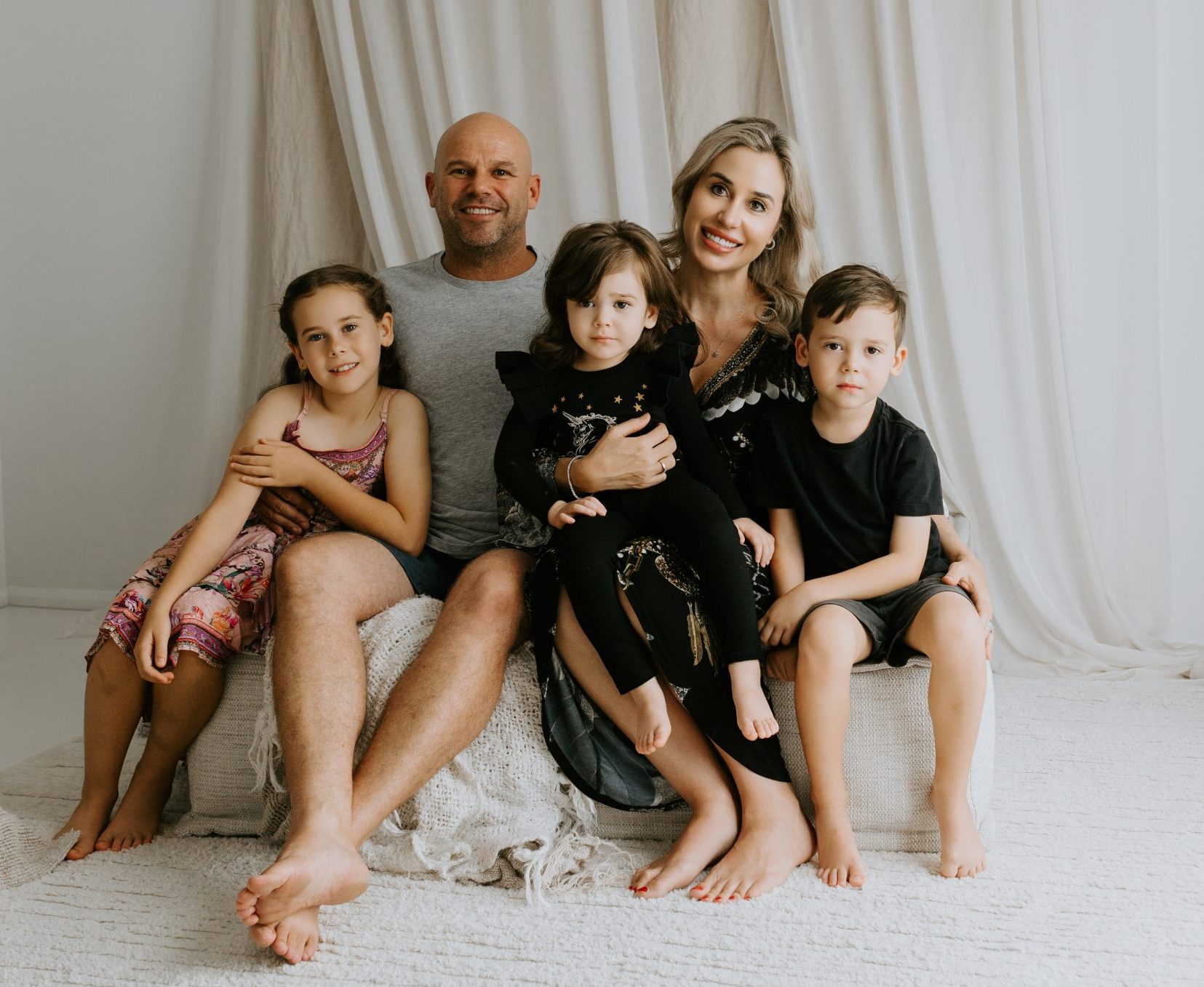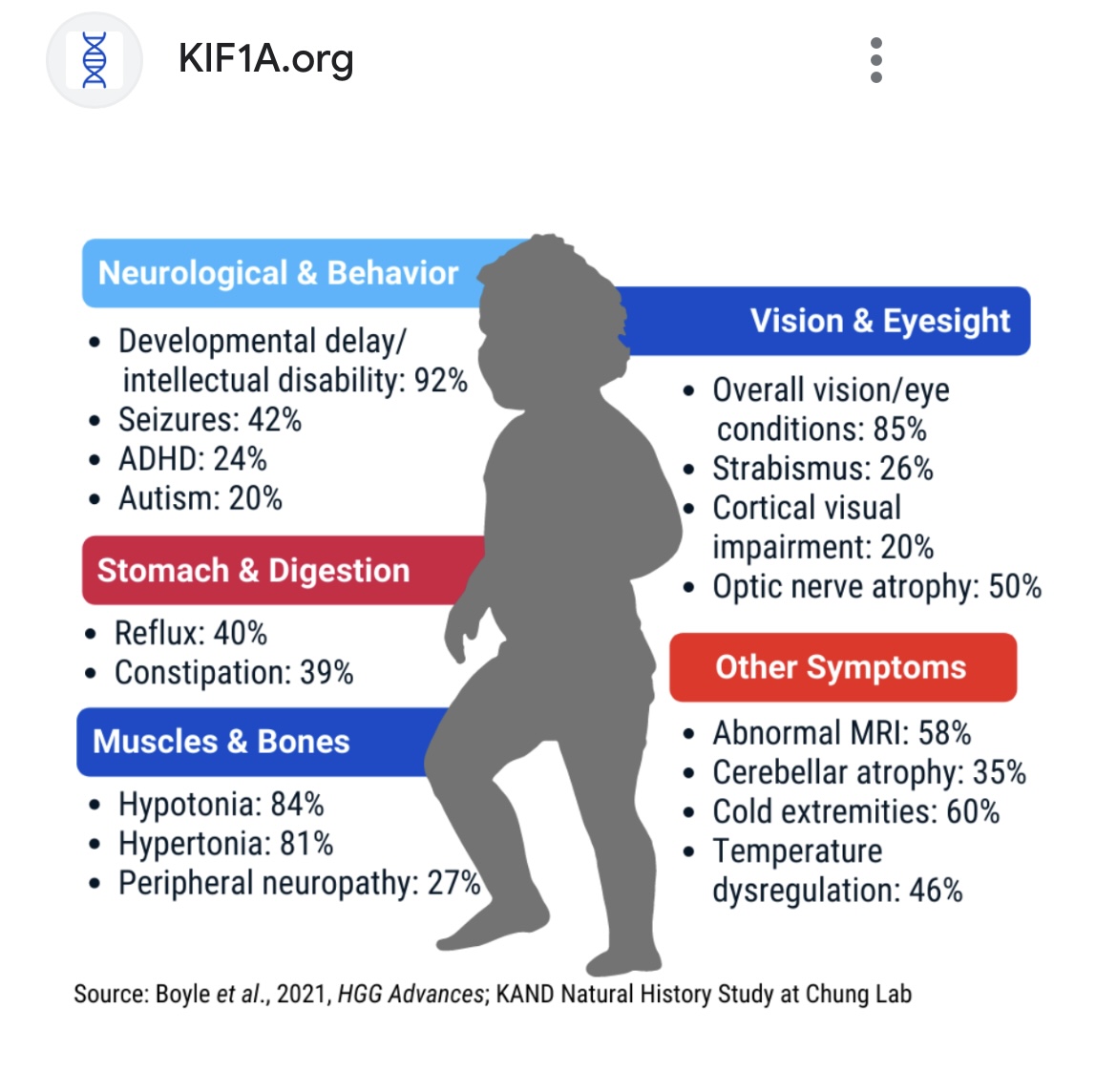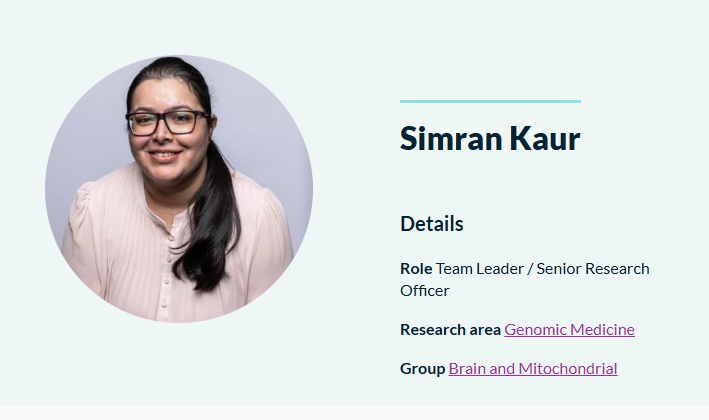
The KIF1A Australia Foundation was founded in April 2024 after David and Jeanette Harris`s youngest daughter Summer Harris was diagnosed with KAND. Kif1a Associated Neurological Disorder is a rare neurodegenerative progressive disease caused by a genetic mutation and has no cure or treatment.
The Foundation works alongside MCRI- The Murdoch Children’s Research Institute in Melbourne, Australia to raise awareness and funds to accelerate research to find a cure for Summer and all other KAND patients and their families.
1+
Countries Represented
23+ in Australia
Families Represented
A$6,000.00
Raised to Advance Our Mission. GOAL AU$100,000.00
What does KAND look like?
KIF1A Associated Neurological Disorder (KAND)
KIF1A Associated Neurological Disorder (KAND) is a rare severe neurodevelopmental and neurodegenerative disease. KAND is caused by mutations in the KIF1A gene.
There are currently over 500 known families impacted by KAND world wide, 23 being in Australia and over 100 identified mutations in the KIF1A gene.
Mutations in KIF1A can cause: cognitive impairment; cerebellar atrophy; ataxia; spastic paraplegia; optic nerve atrophy; cortical vision impairment; peripheral neuropathy, and epilepsy. The set of symptoms and their severity vary depending on mutation type and individual patient.
Symptoms often appear at birth or in early childhood, but broader access to genetic testing has identified patients with adult onset of symptoms.
Mutations in the KIF1A gene often occur spontaneously and are typically non-inherited genetic changes, or disease-causing genetic mutations. KIF1A Associated Neurological Disorder is difficult to diagnose without extensive genetic testing.
While KAND is a neurodegenerative disease, it does not affect any two people the same way. Progression and severity of KAND varies by mutation, and some mutations are more common than others. Whole Exome or Whole Genome Sequencing is often how families receive a diagnosis. KAND affects exponentially more people than are identified today.

Research Partners
Dr. Simran Kaur, is leading Australia’s first KAND research program in collaboration with national and international collaborators to accelerate research into KAND.
The team hopes that by better understanding disease pathophysiology, we can identify disease biomarkers and new therapies, driven by cutting-edge stem cell technology These advances will improve long-term health outcomes for this vulnerable group of children and may potentially offer unprecedented and life-changing opportunities for individuals and families affected by KAND.



